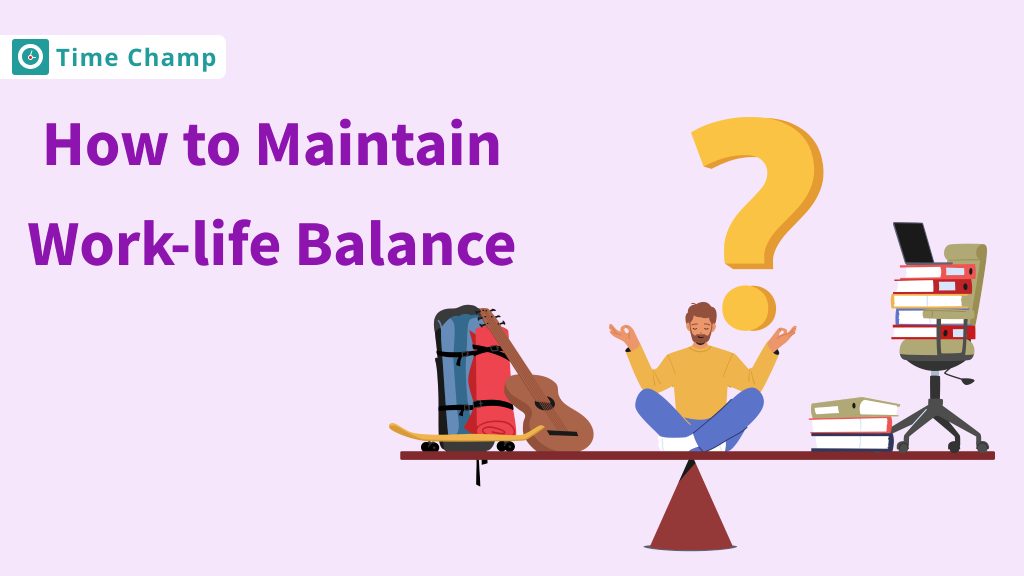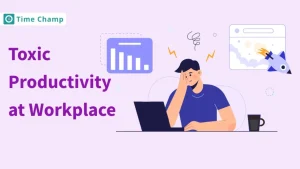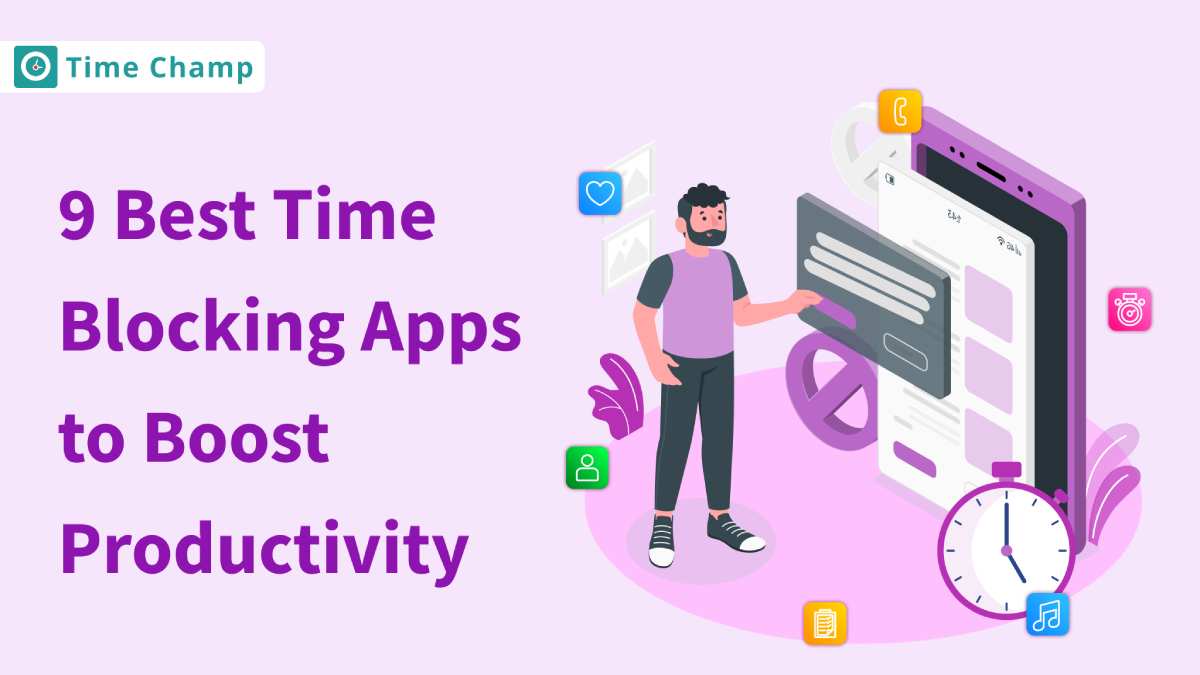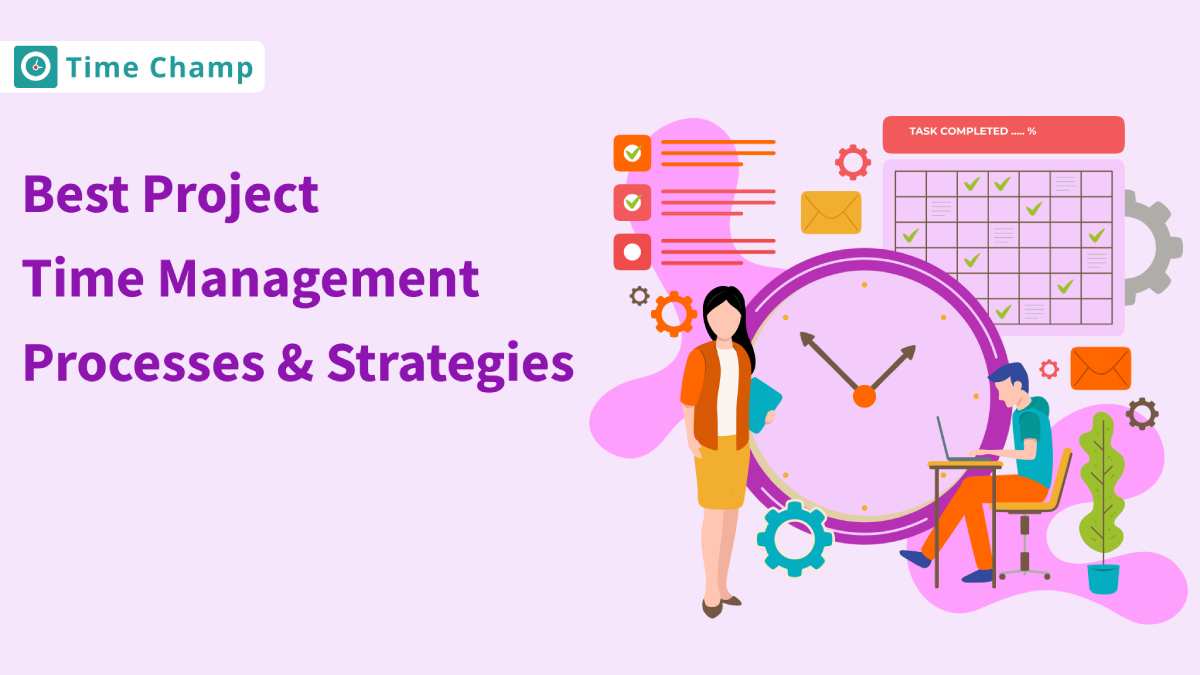Well, you must be here because you
have realized that work-life balance
is as easy as balancing flaming
torches on a unicycle, right? I
assure you, you are not the only one
who feels this way but do not worry,
I have some tips that will help you
balance your work and your personal
life.
Are you ready to dive
into the journey?
Let’s
get started!!
What is Work-life Balance?
Work-life balance is a balancing act between your career and your personal life. It is about achieving the perfect balance where neither work nor personal activities take up all your time and effort. Work-life balance is the ability to do well in your job as well as to spend time with your family, friends, hobbies, and self. It helps you to have improved mental health, good relations, and a better and fulfilling life.
It is not just about how many hours you spend at work and how many hours are left for other activities, but also about where you draw the line and what is considered significant. Time management is the act of planning and scheduling your tasks and activities in a manner that is most suitable to you. It is important to note that work-life balance is a lifelong process of making adjustments as you go through the different stages in life. It is all about creating a lifestyle that is healthy, effective, and fulfilling in every aspect of your life.
Importance of Work-life Balance
It is very important to balance
between work life and personal life
to be healthy. It is like a shield
against burnout and stress,
which provides an opportunity to
rest not only the body but also the
soul. Also, when you have that
balance, you are more
productive and attentive at
work, which is great for your
career.
Oh, and you know
what?
Companies that support
work-life balance are way more
appealing, which means that it is
easier to attract and retain
talented people.
Also, do you
have time for hobbies and personal
stuff?
That is where the
creativity is – it ignites it and
makes you feel like you are
accomplishing something. And, of
course, time spent with friends and
family – that is the essence of
life, is it not? When you have that
balance, you are happy, productive,
and enjoying life to the fullest.
How to Maintain Work-life Balance?
Work-life balance is like a little
juggling but with the right tips, it
will be easier than a ping-pong
match.
Let’s have a look:
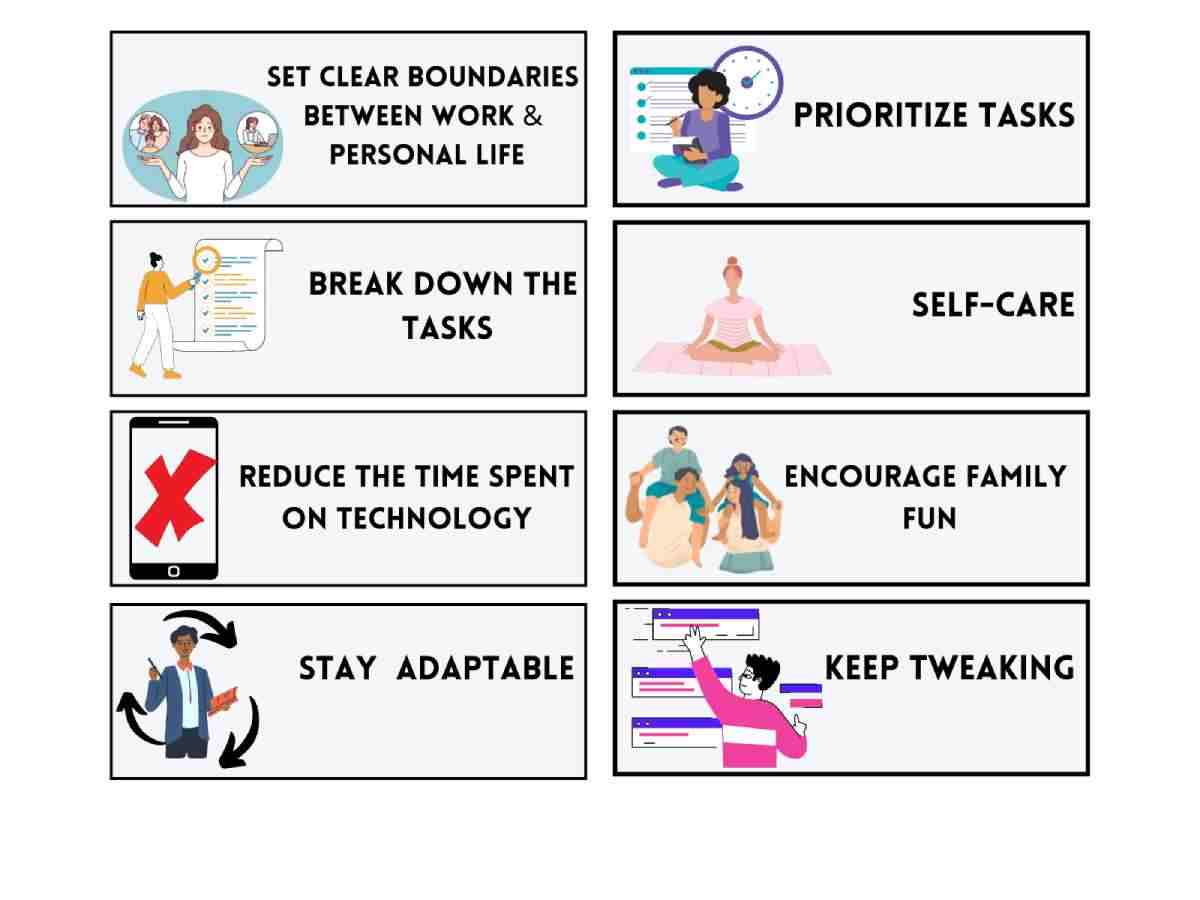
1. Boundaries that Work
It is important to respect your working hours as much as you respect your free time as valuable as well. It is important to be very specific on what is permitted and what is prohibited. To the extent possible, avoid logging into your work email or answering work calls during your free time unless there is an emergency.
2. The Power of Prioritization
Have you ever felt that there are so
many things to do?
Learn how
to prioritize your work and do it
like a real professional – start
with the important tasks. And do not
forget to say no if you are occupied
with other work or assignments.
Remember, quality over quantity!
3. Time Hacks
The most important factor that can help achieve the goal is time. Use Calendars and applications to facilitate organization. Break down the big tasks into smaller chunks and include some personal time in between the work schedule.
4. Self-Care
Self-care isn’t selfish—it’s essential! Make sure that you can take some time off and do something that will make you feel more relaxed like going to the gym, reading a book, or listening to music.
5. Tech Timeout
Put down the devices!
Reduce
the time spent on technology,
especially during free time. Create
zones in your home where technology
is prohibited to encourage real-life
social interactions and connections.
6. Family Fun
Involve the whole crew in the balance game. Encourage your family to go out for a picnic or watch a movie together to bond and have fun. Anyway, life is all about making memories with loved ones!
Roll with the Punches:
Be
prepared to adapt to change and be
prepared for anything that life can
throw at you. Be ready to revise
your plans and objectives when it is
appropriate. It is all about finding
the balance that works best for you.
7. Keep Tweaking
Last but not least, it is important
to realize that balance is a journey
and not a destination. Consider what
strategies are useful and what
strategies need to be modified.
Follow these tips and keep on
rocking that work-life balance like
a pro!
Benefits of Work-life Balance
It is not just a slogan; it is about making your life better and happier. Now it is high time to discuss the benefits of work-life balance!
1. Enhanced well-being
Work-life balance is your armour against burnout, stress, and other mental health issues such as anxiety and depression. In other words, you are providing yourself with time to be cared for and this is very important to have a healthy body and mind. This implies that you will be able to take fewer sick leaves, more energy, and overall health for you.
2. Improved productivity
If you have a good balance between
work and personal life, you will be
more
productive, motivated, and
dedicated to your work. It will help
you to plan your time better,
synchronize your work, and avoid
such negative
factors as procrastination
and fatigue.
The result?
This will enable you to
achieve more within a short period
and with improved quality thus increasing
your productivity.
3. Boosted creativity and innovation
It is always advisable to have some time off work to engage in other activities that are interesting and enjoyable to do. Doing different things in life develops new approaches to thinking and new approaches to solving problems which leads to creativity.
4. Strengthened relationships
Work-life balance enables you to spend quality time with your family, friends, and loved ones. Friends and family provide you with companionship, motivation, and a feeling of being wanted and needed.
5. Greater satisfaction and happiness
The last but not the least, work-life balance improves the quality of life and makes you happier. If you are satisfied with every aspect of your life, then you will feel that there is meaning in life. In career, relationships, physical and mental health balance fosters a harmonious and fulfilling lifestyle.
Challenges of Work-life Balance
Do you ever get the feeling that you
are always keeping several balls in
the air and trying not to let them
fall? It is always a tug-of-war
between work and family. From
spending many hours at the workplace
to the allure of opening the mail at
midnight.
Alright, let’s look
at these challenges and see how we
can tackle them.
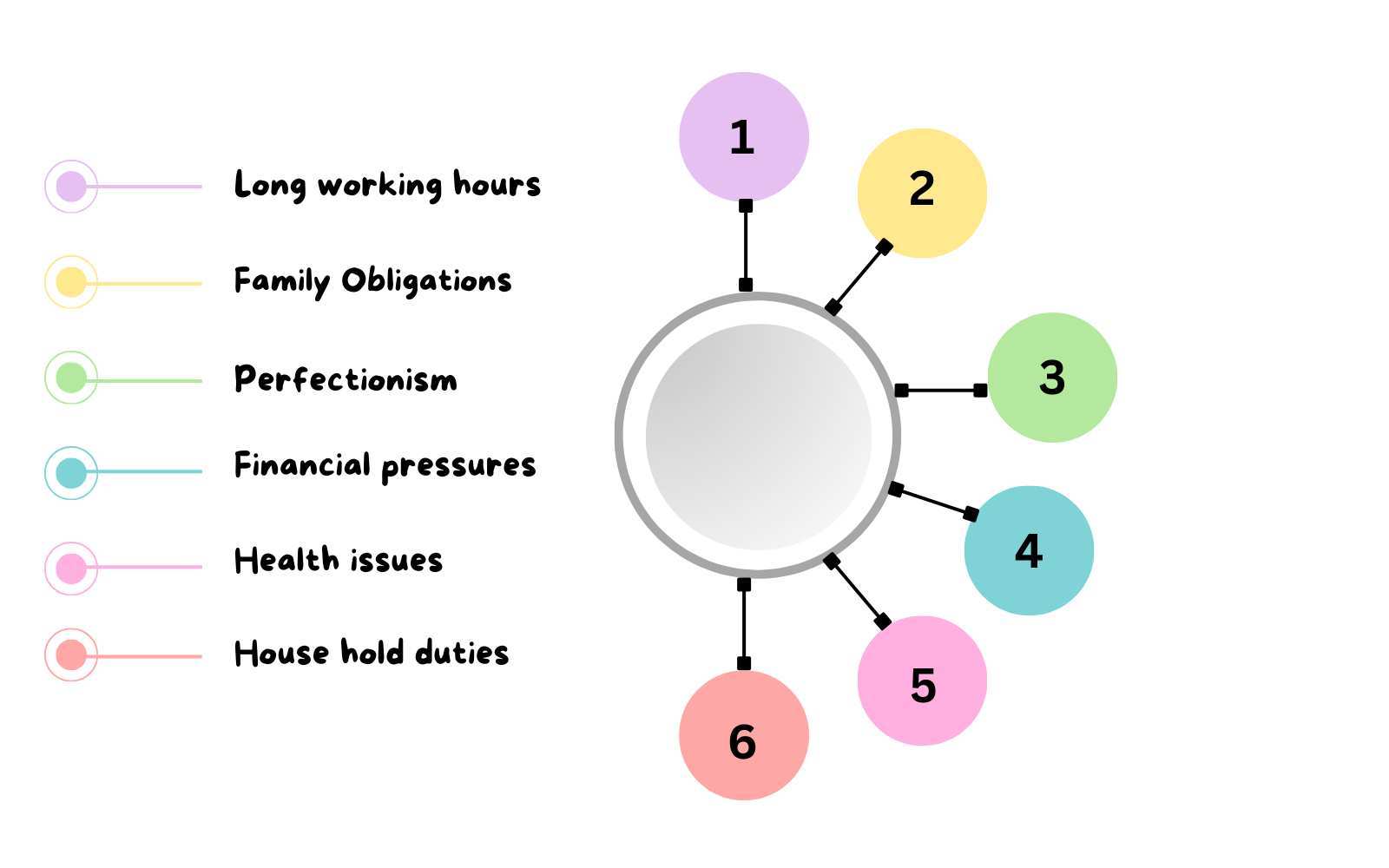
1. Long Working Hours
Most employees are expected to work for many hours, and this takes time from other activities and may cause fatigue and stress.
2. Family Obligations
This burden is even higher when there are children, elderly parents, or other dependents in the household.
3. Perfectionism
Some people may find it difficult to manage their work and family responsibilities due to perfectionism issues that make them want to be perfect in everything they do.
4. Financial Pressures
Low income or economic vulnerability often makes people work several shifts or many hours, and thus, there is no time to engage in leisure activities.
5. Health Issues
Stress can lead to several physical and mental ailments including anxiety, burnout, etc. Stress can weaken the immune system, affect sleep, and make it worse.
6. Household Duties
Many tasks are time-consuming and
energy-demanding, which complicates
the division of work and household
tasks.
These are some of the
challenges many face, but do not
worry we’ll be discussing some
effective solutions in the next
section!
Solutions of Work-life Balance
The balance between work and life is
like trying to perform a high-wire
act in a circus with lots of
activities.
Let’s find out
some effective tips to achieve this
balance successfully!
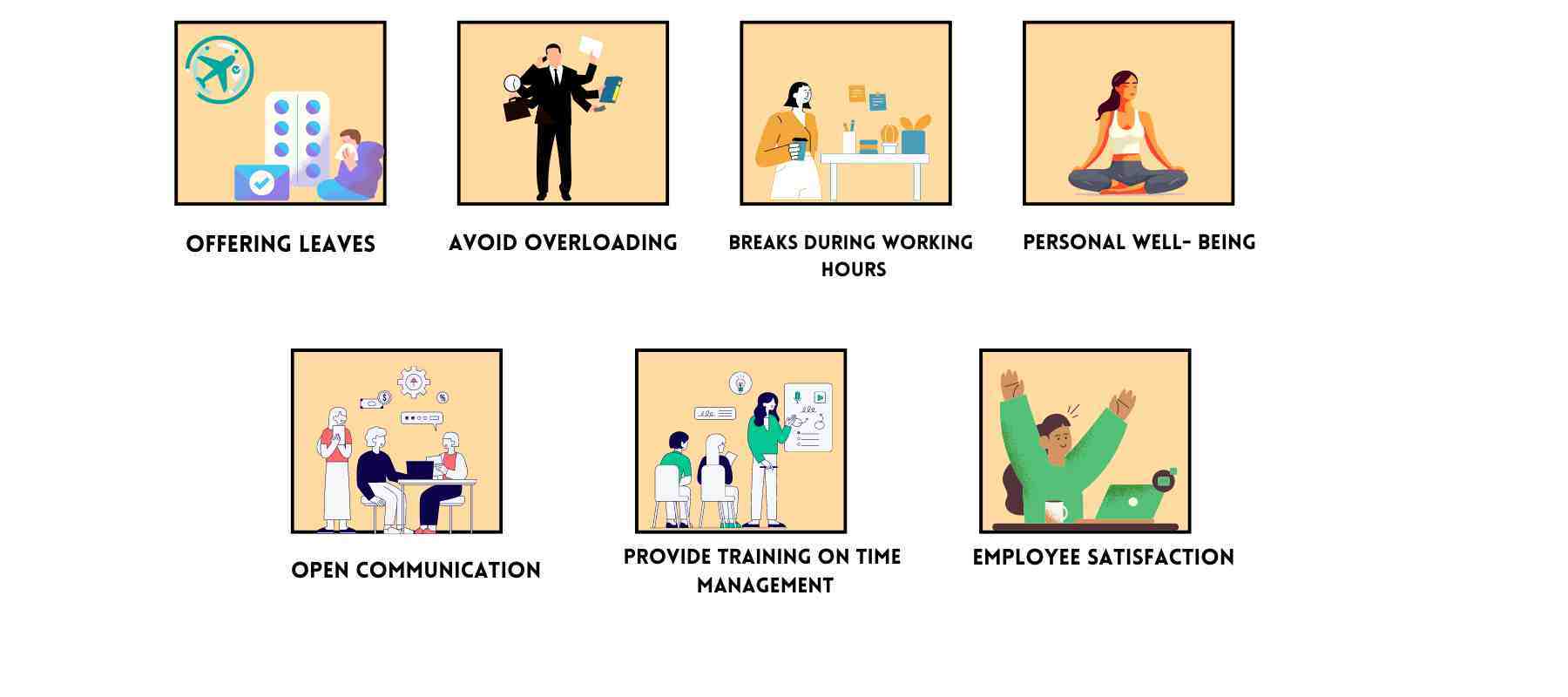
- Paid vacation days, sick days, and personal days allow to rest and address the issues. Taking parental leave and childcare assistance can ensure that family obligations do not become overwhelming.
- Avoiding overloading and setting realistic deadlines is another way of avoiding burnout. Reminding managers to divide the work evenly can help to lessen the load and prevent burnout.
- Breaks during working hours are effective in increasing productivity and decreasing stress levels. It is also important for companies to refrain from sending work-related communications during off-working hours.
- Activities such as gyms, yoga, and meditation help in enhancing the health of the body and the mind. Offering counselling and support services for personal or workplace concerns provides valuable assistance.
- Communication should be encouraged so that workload and personal needs can be addressed. Daily or weekly meetings to review the work progress and any problems that may have been encountered can help in workload management and problem-solving.
- Providing training on how to manage time effectively helps in managing tasks. Stress management workshops offer ways of dealing with stress in a better manner.
- Supporting hobbies and activities that individuals enjoy fosters greater satisfaction and reduces stress.
It is not always possible to achieve work-life balance but with some adjustments here and there, it is possible to achieve a better balance.
Conclusion
Work-life balance is not achievable, but it is achievable to aim for. Thus, it is possible to set limits, work effectively, and have time for oneself and one’s family to have a happier and healthier life. Remember, it is a process of gradual improvement, so do not get angry at yourself and just try different approaches to find the best one. Here’s to a better and more fulfilling life!
Frequently Asked Questions
Work life balance is the ability to effectively balance work and personal life. It is beneficial to the individuals to enhance their health and their social relationships as well as enhances productivity at the workplace and reduces staff turnover.
The main causes of work-life conflict include long working hours, workload that leads to stress, strict working schedules, job insecurity, and organizational culture that encourages being always connected. To address these issues, it is necessary to set boundaries and be more fluid.
The four pillars of work life balance include time management, stress management, flexibility at the workplace, and work-life separation.
An example of work life balance is a person who works full time but also exercises, does other things that they like and spends time with friends and family. They can arrange their work, have sick leaves, and other privileges such as working from home to balance between work and family.
